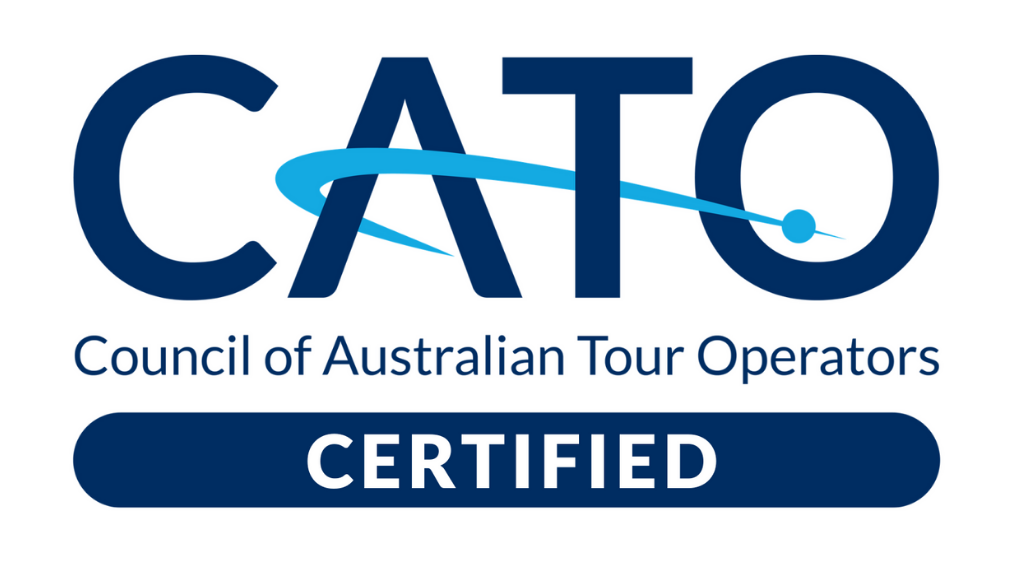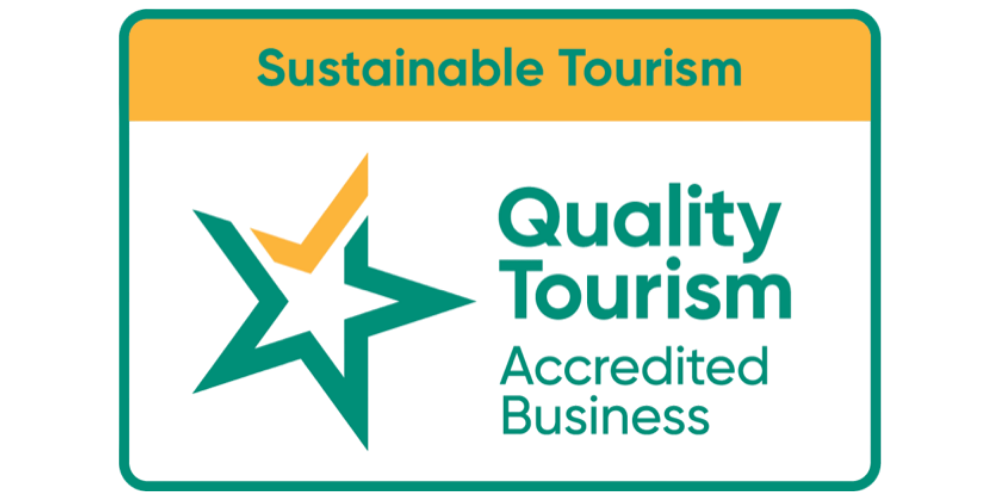
Tasmania's Wild South: 8-Day Sea Kayak Expedition
📍 SW Tasmania, Aus | Guided | All Inclusive ✅
Venture deep into the untouched wilderness of Southwest Tasmania.
Traverse World Heritage waterways, camp beneath ancient forests, and embrace true isolation
Verified Reviews
Live Dates, Matched Prices
Secure Payment Portals
Vetted Tour Operators
200% Climate Positive
Verified Reviews
Live Dates, Matched Prices
Secure Payment Portals
Vetted Tour Operators
200% Climate Positive
Hobart, TAS
Moderate
Camping
200% CO₂ Offset

Immerse in Southwest Tasmania | 8-Day Eco-Kayak Expedition























Tour Overview
Tasmania’s Hidden Waters: 8-Day Southwest Wilderness Sea Kayak Expedition Paddle the mirror-calm, tannin-dark channels of Bathurst Harbour and Port Davey – World Heritage wilderness surrounded by quartzite peaks, buttongrass plains and untouched rainforest – with 200% carbon offsetting and absolute zero-trace practices.
Tour at a Glance
- Duration: 8 days / 7 nights
- Fitness: Moderate – 4–6 hours paddling most days (15–20 km), calm sheltered waters, some wind/waves
- Experience: No prior kayaking required (full instruction given)
- Group size: Max 12 guests
- Accommodation: 7 nights lightweight wilderness camping (twin-share tents, thick mats, camp chairs, sleeping bags provided)
- Start / Finish: Hobart, Tasmania
What’s Included
- Return scenic flights Hobart ↔ Melaleuca (Par-Avion, ~40 min each way)
- All kayaking & safety gear (stable double & single sea kayaks, PFDs, pogies, spray skirts, dry bags)
- Full camping kit (tents, sleeping bags rated 0 °C, mats, head torches)
- All meals from lunch Day 1 → lunch Day 8 (fresh Tasmanian produce, two celebration wine nights, dietary needs catered)
- Two professional wilderness guides + satellite phone & full safety equipment
- All national park & remote-area permits
- ~85–100 km total paddling + optional day hikes
- Full 200% CO₂ offset (including flights, paddling & camping)
Not Included
- Flights to/from Hobart
- Pre/post-tour accommodation in Hobart
- Mandatory remote-wilderness travel insurance
- Personal clothing & toiletries
- Alcohol beyond included wine nights
- Costs arising from weather delays
Day-by-Day Itinerary
- Day 1: Hobart → Melaleuca Morning scenic flight over Southwest wilderness – land at Melaleuca – short walks & Deny King museum – orange-bellied parrot sightings – first waterfront camp
- Day 2: Bathurst Channel ~15 km paddle through rainforest-lined shores – camp on a sheltered quartzite beach
- Day 3: Port Davey Ocean Coast 15–20 km along exposed coastline – possible island loops – beach hike & swim
- Day 4: Bramble Cove Rest Day Short 6–10 km paddle to hidden Bramble Cove – afternoon free for summit hikes or relaxation
- Day 5: Flexible Exploration Choose your own adventure – summit climbs, relic hunts, or gentle bay paddling
- Day 6: Return Across Bathurst Harbour ~20 km with favourable winds – dramatic mountain reflections – final wilderness camp
- Day 7: Hidden Inlets & Rivers 10–15 km exploring quiet corners, celtic-like channels & birdlife
- Day 8: Melaleuca → Hobart Gentle 8 km morning paddle – pack-up – afternoon scenic flight back to Hobart (~16:00)
Essential Packing
- Quality waterproof paddling jacket & pants
- Thermal layers & beanie (nights near 0 °C)
- Quick-dry long-sleeve tops & sun hat
- Personal toiletries & small pack towel (biodegradable only)
One of the world’s last great wilderness paddling journeys. Reserve your place with Zero Trace Tours and experience Tasmania’s untouched southwest.
View Live Dates & Availability
Key Tour Info
Tour Itinerary
Day 1 | Fly In, Settle In, Soak It In
Welcome!
Meet at Cambridge Airport and prepare to leave the everyday world far behind. A 40–50 minute scenic flight delivers you deep into one of the planet’s last true wilderness frontiers—flying over Tasmania’s rugged inland peaks or dramatic coastline, depending on the weather.
Touch down at the remote Melaleuca airstrip, built by pioneering conservationist Deny King. From there, wheel your gear a short distance to the expedition basecamp and settle in.
The afternoon is yours to explore this remote corner of the world:
- Wander the interpretive Needwonee Walk
- Visit the Deny King Museum for insight into Melaleuca’s wild legacy
- Keep an eye out for the critically endangered Orange-bellied Parrot, which breeds here in the summer months
After dinner, your guides will talk through the weather, sea conditions, and possible paddling routes for the days ahead—setting the tone for your journey into the wild.
Day 2 | Paddle into Bathurst Channel
Paddle Distance: ~15 km (4–5 hours)
Push off into Bathurst Channel and begin your first day on the water. This scenic stretch offers a stunning introduction to the Southwest Wilderness—deep, tannin-rich waters flanked by rainforest-covered slopes and moody skies.
Expect a gentle headwind at times, balanced by regular breaks to stretch your legs, refuel, and soak in the silence of this remote world.
By evening, glide into a peaceful bush camp tucked along the shoreline. Settle in, breathe deep, and take in the views—earned, and entirely worth it.
Day 3 | Coastal Curves & Spain Bay Sands
Paddling Distance: 15–20 km (3–5 hrs)
Today’s route follows a more exposed section of coastline, opening up expansive views across Bathurst Harbour and the Southern Ocean beyond. If the weather is favourable, there may be an opportunity to paddle around the dramatic Breaksea Islands—a highlight for many.
After landing at Spain Bay, those keen to stretch their legs can enjoy a remote coastal walk across the isthmus to Stephens Beach. Whether you paddle, hike, or just take it all in, this is a day for big horizons and quiet moments at the edge of the world.
Day 4 | Into the Arms of Bramble Cove
Paddling Distance: 6–10 km (2–4 hrs)
Today’s paddle is shorter but no less rewarding, taking you deep into one of the region’s most tranquil, sheltered inlets. As you glide through glassy waters flanked by towering quartzite peaks, the pace slows and the silence deepens.
Arrive at a peaceful bush camp where the mirrored surface of the harbour reflects the surrounding wilderness. Spend the afternoon unwinding, exploring on foot, or simply soaking in the stillness—this is Southwest serenity at its finest.
Day 5 | A Day to Explore or Exhale
Free Time
Today is yours to shape. Whether you’re craving a challenge, quiet reflection, or something in between, the landscape offers options in every direction.
Head out on foot to summit Mt Stokes or Mt Milner for sweeping views of the harbour and beyond. Prefer to stay on the water? Paddle to Whale Head or Wallaby Bay, tracing quiet coves and untamed shoreline.
There’s also the chance to explore remnants of the region’s early whaling days—weathered relics that whisper of a very different past. However you spend it, this flexible day is about connecting with the wild on your terms.
Day 6 | Drift Through Bathurst Harbour
Paddling Distance: ~20 km (4–5 hrs)
The return journey east takes you back across the broad, open sweep of Bathurst Harbour—often with the wind at your back and the water like glass beneath your kayak.
Drift past untouched shoreline, ancient forest, and mirrored reflections that blur the line between water and sky. It’s a day to savour the scale and stillness of the Southwest, where every paddle stroke feels lighter and every view more expansive than the last.
Day 7 | Inlets, Islands, and a Final Camp
Paddling Distance: 10–15 km (3–5 hrs)
Today offers a final chance to explore some of the Southwest’s quieter corners—perhaps tracing the winding North River or circling the forested Celery Top Islands.
The pace is gentle, the waters calm, and the scenery ever-changing. It’s a day for reflection, slow paddling, and soaking in the last wild moments before your final night in camp.
Day 8 | One Last Paddle, Then Home
Paddling Distance: ~8 km (1–2 hrs)
Ease into the day with a relaxed start and one final paddle—this time up the winding Melaleuca Inlet, retracing your route back toward civilisation.
At the airstrip, you’ll clean down your gear and prepare for the scenic midday flight back to Hobart. Return transfers are included.
Note: Weather in the Southwest can be unpredictable. Flights may be delayed due to poor conditions, so it’s strongly recommended to allow at least 24 hours before any onward travel plans.
Need more info. Check out full trip notes here
Food & Accommodation
Where You’ll Stay
This is true wilderness camping—no hotels, no crowds, no roads. Each night you’ll set up camp in remote and spectacular locations within Tasmania’s World Heritage-listed Southwest.
You’ll be provided with high-quality gear, including:
- single or double tent (singles don’t share)
- warm sleeping bag and liner
- sleeping mat and ground chair
Campsites are chosen for their natural beauty and shelter. You’ll help pitch your own tent each day, adding to the expedition spirit. There’s no power, no mobile coverage, and definitely no reception—just the sounds of nature and a sky full of stars.
What You’ll Eat
Every meal on the expedition is prepared fresh by your expert guides using high-quality ingredients—no dehydrated rations here.
You'll enjoy:
- Hearty hot breakfasts
- Packed or picnic-style lunches
- Delicious dinners served with a complimentary glass of wine
- Plenty of snacks and hot drinks throughout the day
Dietary requirements? No problem—just let the team know in advance. Everything is carried in and out with care, so meals are simple, satisfying, and low impact on the environment.
What's Included & What's Not
What’s Included
- Return flights between Cambridge Airport and Melaleuca
- Transport between Hobart city and Cambridge Airport
- 8-day guided sea kayaking expedition through Tasmania’s World Heritage wilderness
- All high-quality sea kayaking equipment (kayak, paddle, spray skirt, PFD, paddle jacket & pants, pogies)
- Expedition-grade camping gear: tent, sleeping bag, liner, sleeping mat, and ground chair
- Two dry bags (20L & 25L) and a 70L duffle bag for packing
- All meals, snacks, and drinks during the expedition, including a glass of wine with dinner
- Cooking equipment and eating utensils
- Toilet paper and sanitation supplies
- Two experienced professional sea kayaking guides
- Safety equipment including first aid kit, satellite phone, EPIRB, marine radio, flares, and towing gear
- Small camp library with reference books and field guides
- Storage for excess luggage in Hobart during the trip
What’s Not Included
- Flights to and from Hobart
- Accommodation in Hobart before and after the expedition
- Travel insurance (strongly recommended)
- Additional alcohol (a glass of wine is included with dinner; extras must fit in luggage and be in non-glass containers)
- Personal clothing and gear not listed as provided
- Costs associated with flight delays due to weather or poor visibility
Weather Expectations
Expect wild coastal weather and ever-shifting conditions in Southwest Tasmania. Temperatures usually range from 8°C to 18°C, but can spike to 20°C in summer—or dip lower near dawn. Rain is common any time of year, so waterproof gear is essential even if skies look clear.
Wind picks up around the waterways—especially mid‑day—bringing choppy paddling conditions. Mornings and evenings tend to be calmer and more sheltered.
Pack layers: thermal baselayers, breathable mid-layers, a stout waterproof shell, and sun protection (hat, sunglasses, SPF). On the water, wear quick‑dry clothing and shoes that can get wet.
Your guides monitor the forecast daily and adjust the route, camp locations, and schedule for safety and comfort.
⭐ Reviews
Field Notes From Fellow Travelers
Verified Reviews from Past Tours
What To Pack
🎒 What to Bring
This is a remote, self-supported expedition—so smart packing matters. Your guides will provide all group camping and kayaking gear, but you’ll need to bring your own personal items and clothing. Here’s what to pack:
On the Water
- Paddling clothes: quick-dry shirt, thermal top (merino or synthetic), board shorts or thermal leggings
- Paddling shoes: wetsuit booties or sturdy sandals that can get wet
- Waterproof jacket (essential—even in summer)
- Gloves (optional, but helpful for paddling comfort)
- Sun hat with strap and a warm beanie
- Polarized sunglasses with retainer strap
- Sunscreen (reef safe), lip balm with SPF
- Reusable water bottles or hydration system (minimum 2L capacity)
On Land & at Camp
- Lightweight towel and swimwear
- Spare warm layers: fleece/jumper, thermal baselayers, puffer jacket
- Comfortable camp clothes (pants, T-shirts, hoodie)
- Waterproof pants (recommended for wet landings)
- Undies and extra socks
- Head torch with spare batteries
- Personal toiletries (eco-friendly please)
- Small quick-dry travel towel
- Insect repellent
Optional but Handy
- Power bank for charging devices (no electricity on tour)
- Book, journal, or cards for downtime
- Dry bag or plastic bags to separate wet/dry clothes
- Lightweight camp shoes (crocs or sneakers)
- Camera or GoPro (but keep it dry!)
- Earplugs (just in case your tent buddy snores)
- Luggage
Bring one soft duffel bag (60–90L max) for all your gear. Hard cases and large suitcases are not suitable.
Your guides will give you a dry bag for items needed during paddling. They’ll help you pack everything to balance weight and space across kayaks.
Need more info. Check out full trip notes here
Local Insights
Local Insights: Southwest Tasmania — Port Davey & Bathurst Harbour
Big-picture vibe
A rare slice of true wilderness: tannin-dark waters, quartzite mountains, button-grass plains and quiet coves that feel a world away. No roads in, no shops, no signal—just weather, wildlife and the hum of wind and water. It’s part of the Tasmanian Wilderness World Heritage Area and protected above and below the surface, so the rhythm here is slow, self-sufficient and respectful.
Orientation & Access
- Where you are: Port Davey and Bathurst Harbour in Southwest National Park and the Port Davey Marine Reserve.
- How people get in: Light plane to Melaleuca, private vessel, or on foot via the South Coast or Port Davey Tracks. There’s no road access to the harbour system.
- When it shines: Summer to early autumn brings the most settled windows. At any time, expect rapid changes—this corner of the Roaring Forties can flip from glass to whitecaps in an hour.
Weather, Wind & Water
- Winds rule the plan. Strong westerlies and sudden squalls are normal; storm-force gusts can funnel through the harbour and channels.
- Rain is frequent. The region averages 2+ metres annually; keep a dry-bag discipline and a flexible mindset.
- Water character: A tea-coloured freshwater lens overlies denser seawater, blocking light and creating a unique “deep-sea-at-shallow-depth” world. Keep strokes tidy near delicate shorelines to avoid mixing that fragile halocline.
Marine Reserve Basics (Kayakers take note)
- The reserve blends no-take and restricted-take zones; some areas prohibit anchoring and diving.
- Speed and wash matter. Low speeds protect shoreline nests and fragile banks.
- Charts & notes: AUS 176 & 793 are the navigation standard; pick up the Port Davey Marine Reserve Map & Notes for precise zones.
- Comms: Weather updates via Tas Maritime VHF Ch 67/68 (07:45, 13:45, 17:33 local). Coverage is otherwise sparse—carry a PLB/inReach.
Culture & Care
- This is an Aboriginal cultural landscape—Country of the Ninene (north shores) and Needwonnee (south of Bathurst Channel). Respect middens and cultural sites; leave artefacts undisturbed.
- At Melaleuca, the Needwonnee Walk shares stories via a 1.2 km boardwalk; the Deny King Heritage Museum adds context on miners, piners and naturalists who lived here.
Wildlife You Might See
- Orange-bellied parrots (critically endangered) breed Oct–late Mar at Melaleuca; observe quietly from the bird hide.
- On waterways: sea eagles, oystercatchers, shearwaters; in quiet coves, seals are possible. Under the surface: black sponges, sea pens and soft corals that usually live far deeper—another reason to keep disturbance low.
- On shore: pademelons, quolls, and a chorus of endemic birds; store food tight—curious nocturnal visitors have excellent resumes.
Practical Essentials
- Fuel-stove only. Open fires are banned across this wilderness; plan meals accordingly.
- Parks Pass required for national park entry.
- Drones: Not permitted on reserved land (including national parks).
- Biosecurity: Scrub boots and gear—Phytophthora (root-rot) and chytrid fungus are real threats. Rinse and dry paddle kit; arrive clean, leave cleaner.
- Facilities: At Melaleuca—airstrip, toilets, basic huts, small campsite, museum, bird hide. No shops, no fuel sales guaranteed, no rubbish services. Pack it in, pack it out.
- Water: Streams and tanks can be available but variable; treat all water. Carry capacity for long dry/ windy spells.
Must-dos & Quiet Gems
- Morning mirror-paddles in Moulters Inlet or the Celery Top Islands for reflections and ancient shoreline pines.
- Stretch the legs:Needwonnee Walk (Melaleuca)—short, meaningful, accessible in most conditions.Mt Beattie—a half-day with big Bathurst Harbour views (track often starts near Claytons Corner).Mt Rugby—full, demanding day when weather is settled; panoramas across harbour and ranges.
- Slow time at Claytons Corner: Tuck in when wind pipes up; it’s a favourite weather-waiting nook.
- Birding hours: Dawn and dusk near Melaleuca Lagoon are prime and peaceful—bring binoculars, not breadcrumbs.
Beyond the Harbour: Gateway Add-ons (Pre/Post)
- Cockle Creek & South Cape Bay (road’s end of Australia): a scenic day walk to ocean cliffs and the South Coast Track gateway.
- Hastings Caves & Thermal Springs: dolomite cave tour + a 28 °C thermal pool—ideal after long days in a drysuit.
- Recherche Bay: coastal campgrounds and calm beaches when the south coast behaves.
Safety & Style of Travel
- Self-reliance is non-negotiable. Carry a robust kit, redundant nav and comms, and a conservative plan B (and C).
- Group management: Short hops, tight convoys, wind-aware crossings and early starts pay dividends.
- Wildlife etiquette: Observe, don’t approach. Keep snacks sealed; never feed animals.
- Leave No Trace: Camp on durable surfaces, scatter tents to reduce wear, pack out all waste, and go soap-light.
Pack List Highlights (region-specific)
- Serious rain gear + warm layers (yes, in summer).
- Sturdy stove + ample fuel (fires are out, appetites aren’t).
- Bug head-net & repellent for still, humid evenings.
- Hard copy charts / topo plus compass; GPS as backup, not the boss.
- Repair kit for hulls and paddles; dry-bag redundancy.
- PLB/inReach and spare VHF if possible.
Local Etiquette (unwritten but appreciated)
- Quiet camps: Sound carries over water—keep nights star-gazing, not stereo-gazing.
- Share forecasts, not fear. Swapping VHF updates and observations helps everyone thread the weather windows.
- If in doubt, wait it out. In Southwest Tasmania, the safest decision is often patience.
CO₂ Footprint Report
Zero Trace CO₂e Report — Southwest Tasmania | 8-Day Sea Kayak Expedition
Results Summary (Topline)
- Estimated total per person: ≈ 814 kg CO₂e
- Offset per person (200%): ≈ 1.63 t CO₂e
- Group total for context (12 guests): ≈ 9.77 t CO₂e
Method: high-estimate with Well-to-Tank (WTT) and aviation non-CO₂ effects via RF = 1.9; includes single-origin guest flights, all meals (included + off-tour), on-tour flights/transport & stays, and +10% uncertainty uplift.
Purpose
Conservatively estimate greenhouse gas emissions (CO₂e) across Scopes 1–3, report per person (with group totals for context), and state the 200% offset applied per person.
Key Tour Info
- Region: Southwest Tasmania (Tasmanian Wilderness World Heritage Area)
- Duration: 8 days
- Start/Finish: Hobart ⇄ Hobart (includes return scenic flights Hobart/Cambridge ↔ Melaleuca, plus Hobart city ↔ Cambridge Airport transfers)
- Group size for context totals: 12 (max 10–12 shown on page)
- Paddling distance: ≈ 85–100 km (human-powered)
- Accommodation: 7 nights wilderness camping (no grid power)
- Meals counted: 24 per person (3/day × 8; included + off-tour)
Scope & Boundaries
- Scope 1: On-tour road fuel (Hobart city ↔ Cambridge Airport shuttles).
- Scope 2: Purchased electricity only if directly attributable (typically negligible for wild camping; accommodation impact handled via room-night benchmark).
- Scope 3: Guest flights to/from Hobart (single-origin rule), on-tour scenic flights Hobart/Cambridge ↔ Melaleuca (included in the tour), accommodation (camp nights), all meals, and uncertainty uplift. Capital goods excluded.
Feeder Hub (Guest Flights) — Single Origin Rule
- Chosen origin hub: Melbourne (MEL) (nearest major capital to Hobart).
- Routing applied (return): MEL ↔ HBA for each person.
Emission Factors & Conservative Defaults
- Flights: UK GOV/DEFRA distance-based factors (economy), WTT included, RF = 1.9 applied.
- Road (mini-coach/utility): Higher passenger-km factor to reflect lower occupancy (conservative).
- Accommodation: Room-night approach (HCMI/CHSB regional benchmarks) for all 7 camp nights to avoid undercounting.
- Meals: Meat-heavy mixed-diet ≈ 2.5 kg CO₂e per meal (upper-bound).
- Uncertainty uplift: +10% added to subtotal where primary meter/fuel data is missing.
Activity Data Applied (this estimate)
- Guest flights: MEL ↔ HBA (return).
- On-tour scenic flights (included): Hobart/Cambridge ↔ Melaleuca (return).
- On-tour road: Hobart city ↔ Cambridge Airport transfers (return).
- Accommodation: 7 nights wilderness camping.
- All meals consumed: 24 meals/person.
Results — Per Person (high-estimate, no tables)
Guest flights (MEL ↔ HBA, return; WTT + RF = 1.9): ≈ 370 kg
On-tour scenic flights (Hobart/Cambridge ↔ Melaleuca, return; WTT + RF): ≈ 160 kg
On-tour road (city ↔ Cambridge transfers; conservative p-km): ≈ 10 kg
Accommodation (7 nights; room-night benchmark): ≈ 140 kg
All meals (24 × ~2.5 kg): ≈ 60 kg
Subtotal: ≈ 740 kg
+10% uncertainty uplift: ≈ 74 kg
Estimated total per person: ≈ 814 kg CO₂e
Reporting focus is per person. Group totals above are provided only for context. Offsets are applied per person.
Assumptions (transparent)
- Origin hub fixed: Melbourne for all travellers (nearest major capital to Hobart).
- Aviation: Distance-based; WTT included; RF = 1.9 to reflect non-CO₂ warming.
- On-tour flights: Treated as separate short-haul sectors (Cambridge/Hobart ↔ Melaleuca return).
- Road: Short city–airport shuttles counted with conservative passenger-km factor.
- Accommodation: Camp nights benchmarked as room-nights to avoid underestimation.
- Meals: Every meal during the 8-day window counted (24/person).
- Uncertainty: +10% uplift applied to subtotal.
Versioning
Generated 23 Aug 2025 (Australia/Perth). Factors reviewed annually or when official sources update.
References
- Zero Trace tour page — Southwest Tasmania 8-Day Sea Kayak Expedition (itinerary, inclusions incl. return flights Hobart/Cambridge ↔ Melaleuca and city–airport transfers): Zero Trace Tours. (Zero Trace Tours)
- UK Government — Greenhouse gas reporting conversion factors 2024 (transport/energy factors): GOV.UK. (Rome2Rio)
- UK Government — Methodology 2024 (WTT; aviation treatment/RF): GOV.UK. (Wikipedia)
- GHG Protocol — Corporate Accounting & Reporting Standard (Scopes 1–3): GHG Protocol.
- Australia National Greenhouse Accounts (NGA) Factors 2024: DCCEEW. (Distances From)
- Great-circle distance context & routing (Melbourne–Hobart; Hobart/Cambridge proximity): Air Miles Calculator • Rome2Rio • Cambridge Aerodrome. (Air Miles Calculator, Rome2Rio, Wikipedia)
Helpful Travel Tools
Save time planning with our helpful travel tools

Optimum Travel Time Heat-Map
Explore the best times of the year to visit your dream destinations so you get minimum crowds and maximum experience
Use Heat-Map
Point A - B Travel Time Estimator
Get an idea of just how long you can expect to travel from home to your dream destination including multiple travel modes
Use Time EstimatorCo2 Calculator
Do your own travel impact calculations using our multiple Co2 calculators.
Measure Your Co2Tour FAQ's
What are the highlights of the Tour?
🏞 Melaleuca
- A remote outpost in the heart of the Southwest National Park.
- Historic home of Deny King, with a rich tin mining history.
- Opportunity to spot the critically endangered Orange-bellied Parrot.
- Access point via scenic flight over Tasmania’s rugged mountains or wild southern coast.
🌊 Bathurst Harbour & Port Davey
- Vast, sheltered waterways in the Tasmanian Wilderness World Heritage Area.
- Known for their still, tannin-stained waters and mirror-like reflections.
- Surrounded by untouched rainforest, quartzite peaks, and ancient coastline.
🐚 Spain Bay & Breaksea Islands
- A remote bay offering wild coastal beauty and a chance to paddle near the dramatic Breaksea Islands.
- Optional hike to Stephens Beach adds a land-based highlight.
🌄 Bramble Cove
- A scenic, sheltered cove with multiple land-based exploration options.
- Base for day trips including:
🌲 Celery Top Islands & North River
- Pristine examples of Southwest Tasmania’s biodiversity.
- Rich in birdlife and dramatic forested landscapes.
How fit do I need to be for this trip?
A moderate level of fitness is required. You’ll be paddling for 4–6 hours on some days, sometimes in windy conditions, and helping with basic camp setup. No kayaking experience is necessary, but being comfortable in water and reasonably active will help.
Do I need kayaking experience?
No prior experience is required. Your guides will provide expert instruction and support throughout the trip. Most participants are first-timers or recreational paddlers.
What sort of weather should I expect?
Southwest Tasmania is famously wild and changeable. Expect temperatures from 10°C to 35°C, rain on at least one day, and chilly evenings. Quality thermals and waterproof gear are essential (see packing list).
What are the campsites like?
You’ll be camping in pristine wilderness. Tents, sleeping bags, and sleeping mats are provided. Campsites are remote with no power or mobile coverage, but rich in natural beauty and serenity.
What’s the food like?
All meals, snacks, and drinks are provided—including a glass of wine with dinner each night. Meals are hearty, nutritious, and prepared by your guides. Dietary requirements can be catered for—just let us know at booking.
How do we get there and back?
The expedition begins with a scenic flight from Hobart’s Cambridge Airport to Melaleuca. Return flights and Hobart transfers are included. We recommend not booking onward travel for at least 24 hours after the trip ends in case of weather-related delays.
Is there phone reception or power?
Nope! This is a true digital detox. There’s no mobile coverage or power, so come prepared with fully charged devices and spare batteries.
- 0 – 2t | Low
- 2 – 4t | Moderate
- 4 – 6t | High
- 6 – 8t | Very High
- 8t+ | Extreme
(T = tonnes CO₂e)
Still Searching? Check these out…
BOOKING & PAYMENT FAQ's
What’s the deposit & payment process?

Choose Tour

Pick Dates

Reserve Spot

Sort Logistics

Adventure Time!
Here’s how it works—clean, simple, no surprises:
A) "Book with Deposit"
- Place a deposit. You’ll pay the deposit at checkout.
- Tell us the details. You’ll receive an email asking for your tour name/date, passenger details, and any special requests (room type, extras, dietaries, etc.).
- We secure your spots. If everything’s clear, we confirm your booking by email so you can lock flights and plan the rest.
- If we need anything (e.g., room configuration, add-on activities), we’ll ask—then issue confirmation once sorted.
- Final balance invoice. After confirmation, you’ll be invoiced the remainder in line with the trips booking terms & conditions (each trip/partner has its own timeline but full payment is generally required at least 30 days prior to departure).
- If we are unable to confirm your spot: you’ll receive a full refund of your deposit. Zero stress.
B) Instant confirmation route (selected trips)
- Some departures use live operator booking calendars. These can deliver instant confirmation inside the operator’s system.
- If you book this way, the operator’s terms & conditions apply immediately (including payment schedules and change/cancellation rules).
Good to know
- Each trip may have slightly different deadlines and deposit rules—You can find the terms and conditions for your chosen booking on the listing page.
- You can still flag special requests after deposit—earlier is better for availability.
What’s your cancellation & refund policy?
Before your booking is confirmed
- If we can’t confirm your spots after you’ve paid a deposit, we’ll issue a full refund of that deposit.
After your booking is confirmed
- Cancellations follow the operator’s cancellation schedule (varies by trip and how close you are to departure).
- Expect possible fees or non-refundable items (e.g., internal flights, permits, certain accommodations).
- If a refund or credit is due, we’ll process it once the operator releases the funds and pass it back to your original payment method.
Instant-confirmation bookings (live operator calendars)
- The operator’s T&Cs apply immediately on these. Some departures are non-refundable or have stricter windows.
How to cancel
- Email us your booking reference, names on the booking, and a one-line request (“Please cancel”).
- We’ll reply with the exact penalties/refund or credit per your operator before proceeding.
If the operator cancels or significantly changes your trip
- You’ll be offered an alternative date, a travel credit, or a refund according to that operator’s policy. We’ll advocate for the best outcome for you.
Good to know
- Refunds are returned to the original payment method; bank/FX fees aren’t usually recoverable.
- Travel insurance is your friend for recovering non-refundable costs.
- The earlier you contact us, the better your options typically are.
Can I change dates or transfer my booking?
Short answer: Usually yes, but it depends on the operator’s rules and how close you are to departure.
Date changes
- We’ll check new-date availability with the operator.
- If a change is possible, you’ll pay any applicable operator change fee plus any price difference for the new date.
- The closer to departure, the tighter (and costlier) changes become; some trips treat late changes as a cancel + rebook under the operator’s policy.
Transfer to another person (name change)
- Many operators allow a name change/transfer up to a certain cut-off.
- Fees and deadlines vary by operator and services booked (e.g., flights may be non-transferable).
Instant-confirmation bookings
- If you booked via a live operator calendar, the operator’s T&Cs apply immediately. Some departures are non-changeable or have stricter windows.
How to request a change
- Email us with your booking reference, preferred new date/person’s details, and any flexibility.
- We’ll confirm options, fees, and any price differences before making changes.
Pro tips
- Ask early—more seats = more options, lower fees.
- Consider travel insurance that covers change/cancellation costs.
- Always check booking terms and conditions, links displayed on each tour page under the overview.
Are you accredited / is my money protected?
Yes. Your money is protected by our own accreditation and safeguards, plus the protections of our tour partners and the payment methods we use.
Our business safeguards
- Legally registered business with documented booking & refund policies.
- Commercial insurance appropriate to our operations.
- VTIC Quality Tourism Accreditation (Quality Tourism Accredited Business) confirming we meet industry standards for customer service, safety, and risk management.
Operator-level protection
- We partner only with established operators who maintain their own financial protections and clear refund/credit policies.
- When you book via a live operator calendar, payment is processed directly by the operator and their protections/terms apply immediately.
How your payment is handled
- All card payments run through a secure, PCI-compliant gateway; we don’t store your full card details.
- If you book through a live operator calendar, payment is processed directly into the operator’s system, and their terms & protections apply immediately.
Your legal rights
- Your purchase is also covered by consumer laws in your country/state (fair trading/refund rights). We reference the applicable jurisdiction on your paperwork.
Extra peace of mind
- Paying by credit card may add chargeback protection from your card issuer.
- We strongly recommend travel insurance to cover situations outside operator/consumer protections (your own cancellation, medical, delays).
Do you offer price matching?
Absolutely. Our prices update live from the operator, but if you spot the same tour on the same dates with the same inclusions and terms advertised for less — even in a public sale or promo — we’ll match it.
Already booked? We’ll refund the difference to your original payment method (eligibility applies, based on the final checkout price including taxes/fees from an authorised seller). And yes, the matched price still includes our 200% carbon offset — no dilution of benefits.
Do I need travel insurance?
Not for every trip—but for most travellers, we strongly recommend it
Some itineraries and partner operators do require insurance (especially remote treks, glacier walks, or bookings made via live operator calendars with mandatory cover).
When it’s required
- Certain partners/departures make insurance compulsory and may ask for proof before departure. If you book one of these, their T&Cs apply immediately.
What good cover includes
- Medical treatment & emergency evacuation/repatriation (high limits).
- Trip cancellation/interruption (protects your deposit and balance if plans change).
- Baggage & travel delay, and supplier default where available.
- Coverage for all activities on your itinerary (e.g., trekking, glacier hikes, kayaking) and any relevant altitudes/conditions.
- 24/7 assistance hotline and a clear claims process.
When to buy
- At booking. That way, cancellation benefits start immediately and you’re covered if something crops up before you travel.
How to share proof
- Email us your policy certificate (names, policy number, assistance phone).
- If you booked via an instant-confirmation operator calendar, follow their proof instructions and deadlines exactly.
Are departures guaranteed?
Most departures run as planned, but guarantees depend on the operator and minimum numbers. If there’s a wobble, we’ll tell you fast and give you options.
How it works
- Minimum group size: Most partners need a minimum number of travellers to confirm a trip.
- When we confirm: Each operator has a confirmation window (often 30–60 days before departure). We monitor load and update you as status changes.
- Any listing from "G-Adventures" will be guaranteed to run with a booking
If a trip is under-subscribed
- We’ll contact you with clear options:
Move to another date (same tour)
Switch to a comparable trip
Full refund of monies paid (per the operator’s terms)
- Any price differences for new dates/trips will be discussed before you decide.
If a trip is suspended (weather, park closures, strikes, force majeure)
- First, we’ll look to re-route or adjust (e.g., alternative park, similar activities).
- If that’s not viable, you can move dates, choose a different trip, or receive a refund/credit according to the operator’s policy.
Our promise
- Proactive comms: We’ll keep you posted as soon as we know more—no last-minute surprises if we can help it.
- No pressure choices: You pick the outcome; we handle the admin.
- Flight advice: Until your tour is confirmed, book flexible/refundable flights or add insurance that covers schedule changes.







